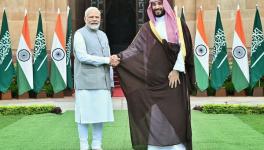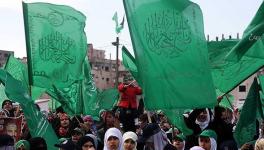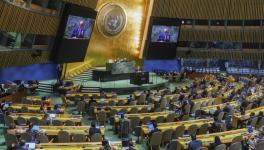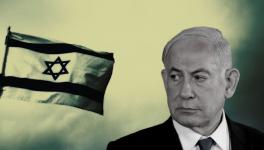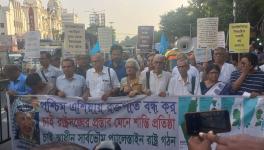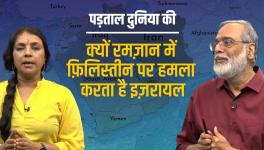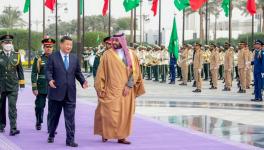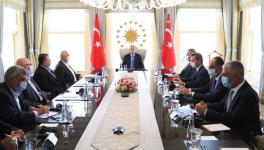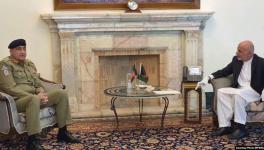What will Ankara do?
Death has escaped from Syria.
The numbers within its borders have climbed to near 30,000. But over the past few months, death has scaled the borders into Lebanon, threatening, as the Lebanese Prime Minister Najib Mikati put it, to "drown" the country in its neighbor's flood. Turkey has not been immune from the escalating violence either.
Syrian refugee camps have been targeted by the Syrian government's forces, and yesterday a mortar attack into the
Turkish town of Akcakale killed at least five people and wounded eight. These numbers are miniscule compared to the dead Syrians, and to the dead Turkish Kurds (30,000 killed, including in "operational accidents").
Nevertheless, they have set Turkey on edge. The government has begun to clear camps on the border, and Turkey's Foreign Minister Ahmet Davutoglu said, "No one should doubt Turkey's defense capabilities."
Turkey retaliated with artillery fire toward the Syrian city of Idlib. The North Atlantic Treaty Organization (NATO) went into a huddle as did the UN Security Council. Whether this will escalate is to be seen. NATO's statement stayed with a call for consultation (article 4 of its Charter) and not with a call to arms (article 5). This indicates that there will be no escalation at this time.
Tension along the Syrian-Turkish border had intensified over the past month. This is not the first mortar attack on Akcakale. After a September 28 strike, Turkey sent a diplomatic note to Damascus. Russia's Deputy Foreign Minister Gennady Gatilov warned against "bomb diplomacy". Tensions on the border, he noted, might provide "pretexts for carrying out a military scenario or to introduce initiatives such as humanitarian corridors or buffer zones". Turkey had restrained itself after Syrian government forces shot down a Turkish F-4 Phantom in June of this year. The Syrians claimed that the F-4 had flown at "very low altitude and at high speed" into its territorial waters near Latakia. At that time, Turkey did not respond with force.
Yasser al-Najjar, a member of the Syrian National Council and the Free Syrian Army (FSA), recently told journalist Lina Attalah in Cairo that the FSA opposes any military intervention by the West, but believes that a "no-fly zone can happen without intervention". This is precisely what the then Arab League head Amr Moussa believed when he endorsed a no-fly zone over Libya on March 12, 2011. Eight days later, after the NATO bombardment began, Moussa said, "What is happening in Libya differs from the aim of imposing a no-fly zone. And what we want is the protection of civilians and not the shelling of more civilians." It is not clear if what al-Najjar wants can be so easily accomplished without a Libya-type intervention. One of his hopes was for NATO missiles to be stationed in Turkey to "protect 30 to 40 kilometers southward."
It is unlikely that Turkey will allow NATO missiles to be stationed in its southern districts to enforce a humanitarian corridor in northern Syria. Over the course of the past few years, the Turkish army has re-engaged the Kurdish Workers' Party (PKK) forces in the region. After a short hiatus between 1999 and 2004, sections of the PKK restarted its war, pushing out of its redoubts in small guerrilla bands to strike at guard posts and to conduct acts of urban terror (including a 2007 bombing in Ankara). Loss of its bases in Iraq and to some extent in Syria and divides among the PKK leadership prevented the kind of frontal assaults that had wracked the 1990s. Over seven hundred people have been killed this year alone, with the Turkish army in operations over the course of September in the mountainous border region that links it to Iraq and Iran.
The reason for the intensified battle between the PKK and the Turkish military lies in a strategic decision by Syria's Assad. This summer, he handed over much of northern Syria, which is demographically Kurdish, to the PKK and its Syrian front, the Party of the Democratic Union. These new base areas allowed the PKK to regroup and begin a major assault on the town of Semdinli (the Turks accuse Assad's regime of giving the PKK heavy armaments, including rocket launchers and heavy caliber machine guns).
As this armed conflict stepped up in September, the Turkish judiciary convicted 324 senior army officials for a plot to overthrow Prime Minister Recep Tayyip Erdogan in 2003. Among those convicted were Ibrahim Firtina (Air Force head), Ozden Ornek (Navy chief) and Engin Alan (who had helped capture and transport PKK head Abdullah Ocalan from Kenya). The new military leadership is aligned with the Erdogan government and is nonplussed by these verdicts.
During these court proceedings and as the Turkish army seemed tied down by the PKK, the Free Syrian Army moved its base in Turkey's Hatay province into Syria. The tone of the FSA was that it was now ready to take the fight to the Assad regime on its own soil. The Turkish government's signal can be read in many ways: either they accept the FSA's view that it must intensify its campaign inside Syria, or that the Turkish government is trying to find a way to extricate itself from its forward policy.
Turkish foreign policy under the Erdogan-Davutoglu regime oscillates between the politics of "zero problems with neighbors" and a neo-Ottoman big power (buyuk devlet) politics. It was the latter that moved Erdogan-Davutoglu to take a strong position against the Assad regime, and as the Kurdish problem has raised its head, it is the former to which they seem to have returned. The mortar attack of October 3 and the Turkish retaliation change the situation somewhat.
Contact group
Set up by Egypt's President Mohammed Morsi, the Syria Contact Group was to have met on the sidelines of the UN General Assembly in New York last week. The point of the meeting was to produce a pathway to end the bloodshed in Syria. The Group's members (Egypt, Iran, Saudi Arabia and Turkey) had pledged to have their foreign ministers meet in Cairo before the UN meet, and then send their heads of government to hash out some kind of document in New York. The Saudi Foreign Minister skipped the Cairo meeting; it was said that he was ill ("The Mystery of the Syria Contact Group," Asia Times Online, September 22). The other foreign ministers continued with the meeting, except that without Saudi Arabia things remained in stasis.
In Cairo, the Egyptians unveiled the four principles for the Contact Group's approach to Syria: 1. Cease Violence. 2. Reject Foreign Intervention. 3. Preserve the Unity of the Syrian People and Land. 4. Maintain Political Unity. The first three points are self-explanatory, and were accepted by the Iranians and the Turks. The fourth point is much more ambiguous - how can political unity be maintained if the country is in a civil war. Turkey was not convinced of the possibility of unity; it has called for the ouster of Bashar al-Assad and his clique, which means that it does not see them as party to a future Syria. Nevertheless, Turkey's Davutoglu did not indicate that his government would leave the Contact Group because of this disagreement.
Neither Saudi Arabia nor Turkey has been a willing partner in the Contact Group. Both have missed meetings, and both have been reluctant to adopt the four principles laid out by Morsi. Nonetheless, all four countries have good reasons to be in the Group. Turkey buys a third of its oil from Iran and proposes to double its current $15 billion trade with that country despite the US and European sanctions. The PKK offensive and the tension on the Syrian-Turkey border heighten the fears that Turkey will not be able to insulate its own problems from the vortex of Syria. Saudi Arabia, as I reported earlier, had insinuated a deal with the Iranians for the former to back off from Syria if the latter close down its support for the demonstrations in eastern Saudi Arabia.
This is why it is Qatar once more that has made noises about an Arab intervention in Syria (this is unlikely to materialize since Qatar's military is largely staffed by Pakistanis and it would rely upon a reluctant Egypt to provide the bodies for the actual force). Iran is desperate for a ceasefire in Syria. When the Contact Group seemed on life support in New York, Iran's President Ahmadinejad suggested that he was forming a new Group to deal with the Syrian problem. This is unlikely to materialize. Egypt is still keen on the Group, and it requires Iran in it since Tehran is the only regional capital with credibility with Assad (apart from Baghdad).
Did the Contact Group die at Akcakale? Will NATO emerge from its huddle and provide the "no-fly zone" that al-Najjar asks for, which is tantamount to a NATO intervention into the Syrian conflict?
Get the latest reports & analysis with people's perspective on Protests, movements & deep analytical videos, discussions of the current affairs in your Telegram app. Subscribe to NewsClick's Telegram channel & get Real-Time updates on stories, as they get published on our website.









